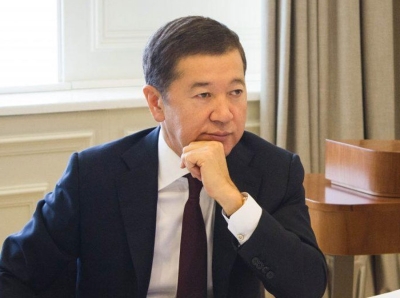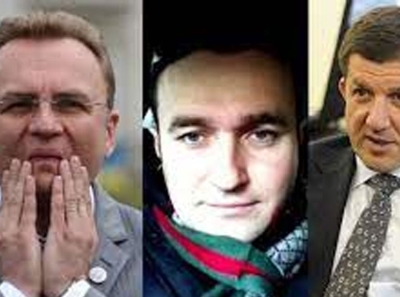Gaza, Lebanon, Iran: is war looming in the Mid-East?
The Sunni terrorist Islamic State militia has claimed responsibility for an attack that left more than 80 dead at a memorial service for Qasem Soleimani in Kerman, Iran. Iran has threatened to retaliate. After the Shiite Hezbollah in Lebanon also issued threats in response to the killing of Hamas leader Saleh al-Arouri a few days ago, commentators fear a conflagration in the region.
Multiplying conflict zones
If more and more states become involved in the war, the worst is to be feared, warns Avvenire:
“Even if the jihadist matrix of the attack in Iran is confirmed, it’s clear that the danger of the region being plunged into an ever broader conflict without rules and with multiplying conflict zones and involved parties is growing. ... Despite the generally pragmatic line taken by Hezbollah leader Hassan Nasrallah. ... Because if the geopolitical scenario in the region becomes ever more inflamed it will inevitably slide towards the worst scenario. ... Especially since the Israeli ultra-right is fuelling violence against Palestinians in the West Bank and openly talking about ethnic cleansing, with hints about deportations.”
Escalation can’t be ruled out
The situation is becoming increasingly explosive, writes the Aargauer Zeitung:
“The radical Sunni Islamic State already carried out bombings in Shiite Iran last year and in 2022. Soleimani commanded the campaign of Iranian troops against the IS in Iraq ten years ago, and played a major role in driving it out of the country. ... The terror in Kerman is the latest climax in an escalation spiral in the Middle East that began with the Gaza war in October. ... Even if Israel and Iran have no interest in a new war, there is a growing danger that they will stumble into an armed conflict because of the tensions surrounding the Gaza war. Attacks like the one in Kerman harbour the risk of further escalation.”
Restore lost security guarantees
Despite all the current difficulties it is in the interests of the West to keep the region in check, political analyst Cristian Unteanu stresses in Adevărul:
“The explanation for this lies in the huge dependence of the super-industrialised West on the resources of the countries in the Middle East. There are also concerns about the security of the movement of goods. ... Since the defeat in Afghanistan and the failure of the ‘war on terror’, the US’s alliances with the states in the region, which were previously the quasi-absolute guarantee of security, have been weakened or even dangerously eroded. What’s more, not only have the terrorist movements in the various countries survived, they have developed into independent, non-state military forces with their own agenda.”
Half-hearted solidarity between denominations
Hamas and Hezbollah are not as close as one might think, Corriere della Sera explains:
“At the funeral of Sheikh al-Arouri in Beirut yesterday there were dozens of Hamas flags, a few from the rival Palestinian faction Fatah, and none, not even one, from Hezbollah. ... It was a Sunni ceremony in a Sunni mosque, in a Sunni neighbourhood. Only two representatives of the Hezbollah Shiites who provided a refuge for al-Arouri in their neighbourhood of the Lebanese capital were present. Despite the fact that the Lebanese Shia leader Hassan Nasrallah had made a strong statement in his speech on Wednesday.”
Interest in a regional conflict?
Without specifying who the masterminds are, Dnevnik suspects that the entire region is being dragged into a war:
“The death of al-Arouri, who was by no means the most important Hamas leader, is crucial mainly because of the location. ... He was killed by a drone in southern Beirut, where Hezbollah has its headquarters. The attack was an open challenge to Hezbollah to enter the war. ... When more than a eighty people were killed yesterday in Kerman, Iran, the outlines of a policy that seeks to lure the putative ‘rebel forces’ (Hamas, Hezbollah, Iran and the Houthis) into an open regional conflict were revealed.”
A threat to global peace
The current wars all have the potential to to escalate on a large scale, fears El País:
“While the war in Ukraine is spreading into Russia and increasing the nuclear threat, the war in the Gaza Strip is spreading across the Lebanese border with the rockets and drones of Hezbollah; in the West Bank it is spreading due to the provocations of extremist settlers; in Lebanon with the targeted assassination of Saleh al-Arouri; on the coast of Yemen with the actions of the Houthi rebels. ... And this Wednesday also in Iran. ... Washington is focused on one strategic goal in both wars: preventing them from getting out of control, threatening world peace and dragging its troops into the wasp’s nest — as has been the case with so many other wars over the last century. All the big wars began as local feuds that then escalated and spread.”









